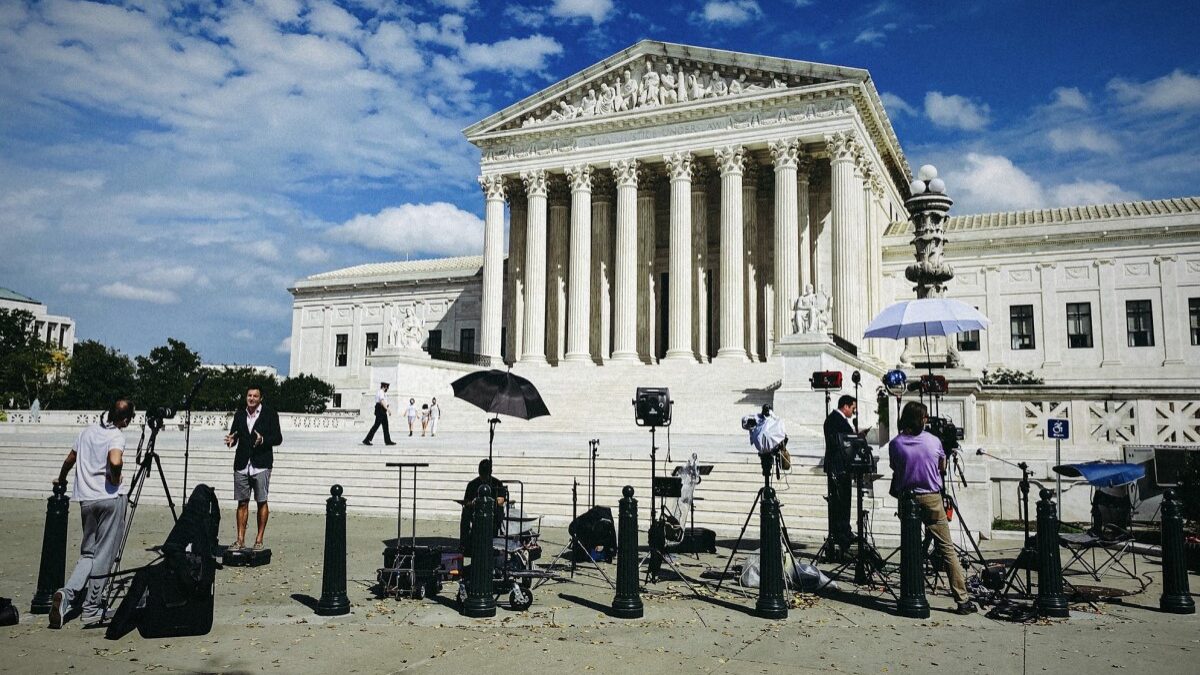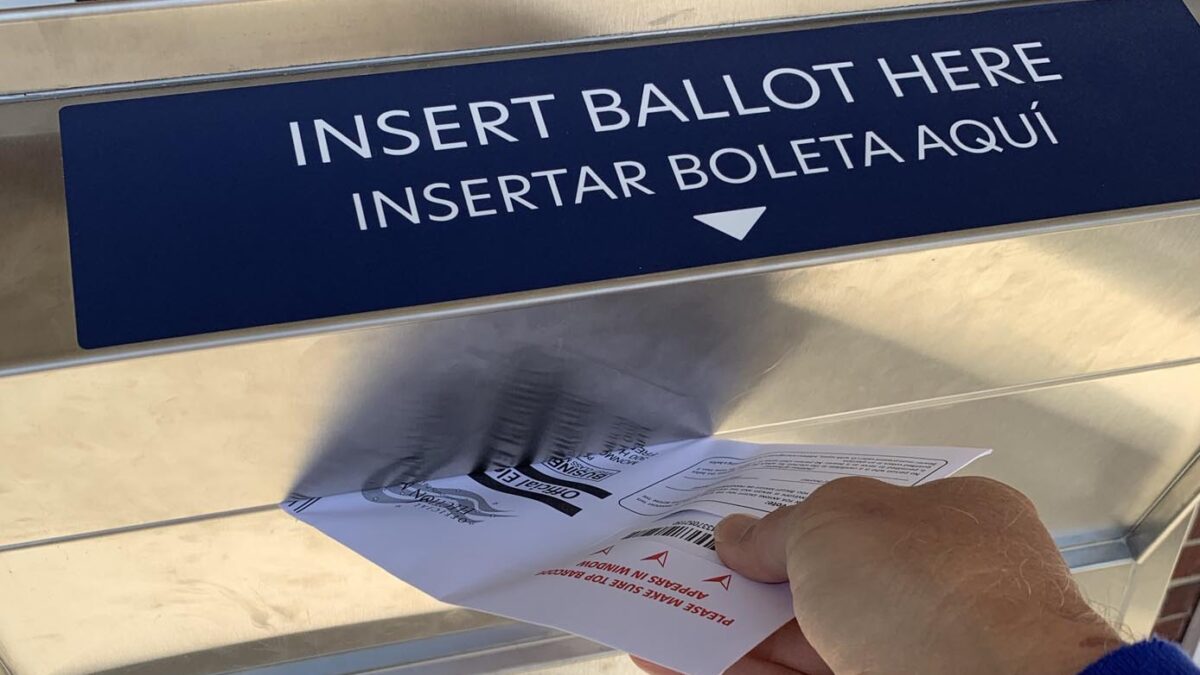There was never a purer demonstration of how traitorous Democrats are about “defending democracy,” or whatever corny phrase they like to use, than what just happened at the Supreme Court.
At the very end of oral arguments in the Colorado case determining whether the state had the right to remove former President Donald Trump’s name from the 2024 ballot, Justice Samuel Alito asked the state’s solicitor general, Shannon Stevenson, what’s going to happen if other states “retaliate” by, say, removing Joe Biden from theirs. Elected officials in at least six states have suggested it as a course of action.
It’s an obvious question that Stevenson either wasn’t prepared for or knew it would expose her state’s case as a tragic joke. “Your honor, I think we have to have faith in our system that people will follow their election processes appropriately, that they will take realistic views of what insurrection is under the 14th Amendment,” she said. “Courts will review those decisions, this court may review some of them.”
What she said next should have resulted in her being laughed out of the room. “But,” she said, “I don’t think that this court should take those threats too seriously in its resolution of this case.”
Alito challenged Stevenson on whether she thought the suggestion of retaliation, coming from places like Florida, Arizona, and Georgia, all potentially swing states in the next election, was truly unfounded.
“Um, I think we have processes—” she said, before being interrupted.
“We should proceed on the assumption that it’s not a serious threat?” said Alito.
Stevenson said there are “institutions in place” that should “handle” such matters. Asked to specify which institutions, she said, “Our states, their own electoral rules, the administrators who enforce those rules.” She also said voters would have to rely on “courts.”
In essence, to believe this entire case by Democrats is an effort to safeguard democracy, rather than rig an election, is to trust that Republicans would never dare try doing the same. If they did, it would ruin Democrats’ plot. Alternatively, if such threats were made good, we should expect enough opposition to render them neutral.
In fairness, a lot of Republicans are naive morons who time and time again respond to Democrats politically kicking their teeth in by saying, “Well, if we do anything back, we’re no better than them.” So, Stevenson’s is not a terrible gamble.
But there’s a long way to go before the election. Attitudes change, and they will rapidly if Colorado is successful and other Democrat states decide to follow the example of unilaterally determining Trump is ineligible to run for a second term, all because he rejected the accuracy of election results (as Democrats do on a routine basis).
The media’s fixation on the Colorado case has focused solely on the legal merits of the case, when the more urgent matter has always been not what happens if it’s ruled legal to keep Trump off a ballot, but what it means for future democratic elections if he is.
There’s a reason until recently it was not only abnormal but unthinkable in America for one political party to use the justice system to exterminate its opponent. The reason is self-evident— mutually assured destruction. If they can do it to us, we can do it to them. It’s what they do in the Congo and every other war-torn state across the globe.
Alito intentionally invoked that perilous likelihood. Stevenson’s response — “I don’t think that this court should take those threats too seriously” — showed just how seriously Democrats take “defending democracy.”









